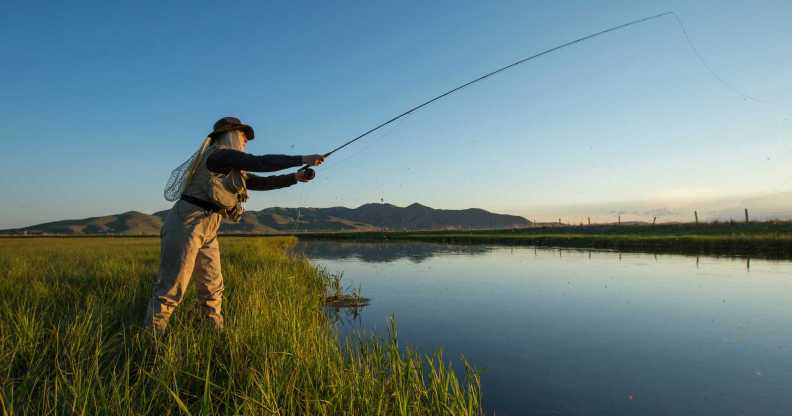Trans women banned from England Ladies angling team due to complaints of ‘strength advantage’

The Angling Trust has banned trans women from competing for England in its women’s category. (Getty)
Recreational fishing’s governing body has said its latest trans participation policy will ban transgender anglers from competing for England in the women’s category.
In September, three members of the England ladies shore fishing team resigned after they refused to compete alongside trans teammate Becky Lee Birtwhistle Hodges.
The team’s former captain Heather Lindfield quit over the issue in June, saying she believed Hodges had an unfair increased upper-body strength, which, she claimed, allows an angler to cast further.
Announcing its decision, The Angling Trust cited concerns that Hodge had an “unfair strength advantage” in events involving casting and dealing with strong winds and currents.
Jamie Cook, the trust’s chief executive, said: “This is an extremely emotive subject and one we have seen a number of other sports struggle with.
“The evidence generated through our review process established that strength, stamina and physical attributes have the potential to offer competitors a significant advantage and in doing so impact fairness.
“Growing female participation is a core focus for the organisation and an area in which we have seen great success in recent years. Ensuring the integrity of the female category across all disciplines of angling will remove potential barriers and ensure clear pathways for participation growth to lead to domestic and international success.”
The updated policy, which will now come into force immediately, allows trans women to compete in the open category in both domestic and international events.
“Angling has a strong heritage of open events and both our national and world championships are already universal (open) categories, allowing the best anglers to compete regardless of gender,” Cook added.
Trans participation in sport remains a contentious issue, with a number of governing bodies choosing to suspend transgender athletes, despite some reports, such as one commissioned by the Canadian Centre for Ethics in Sport, revealing that, if existing rules are followed, trans women do not have any advantage over any other women when competing in elite sport.
In August, British Rowing banned trans women from its female category at elite level. The following month, angling’s international federation, the Confédération Internationale de la Pêche Sportive, ruled it was “absolutely discriminatory” to allow trans women to compete in its ladies category.

